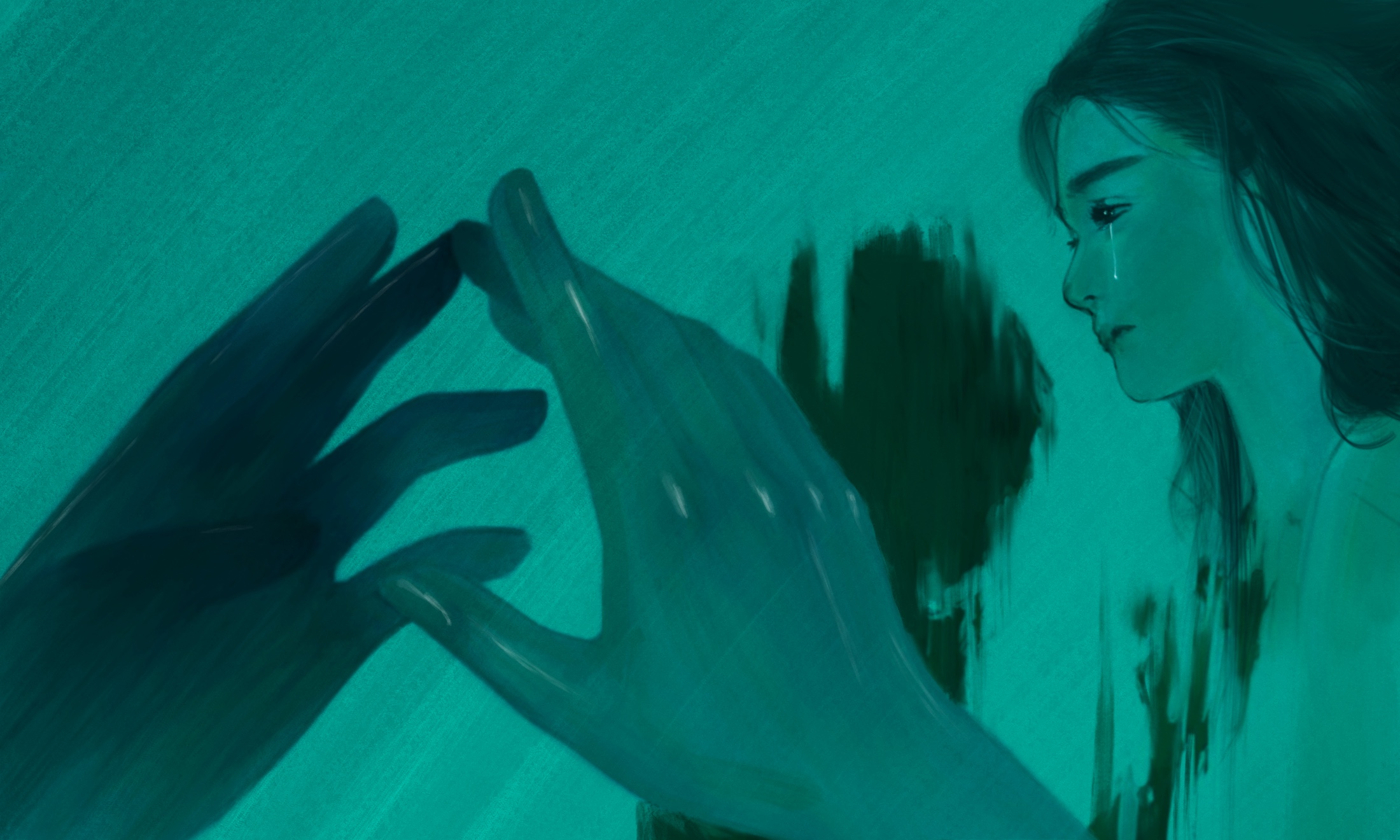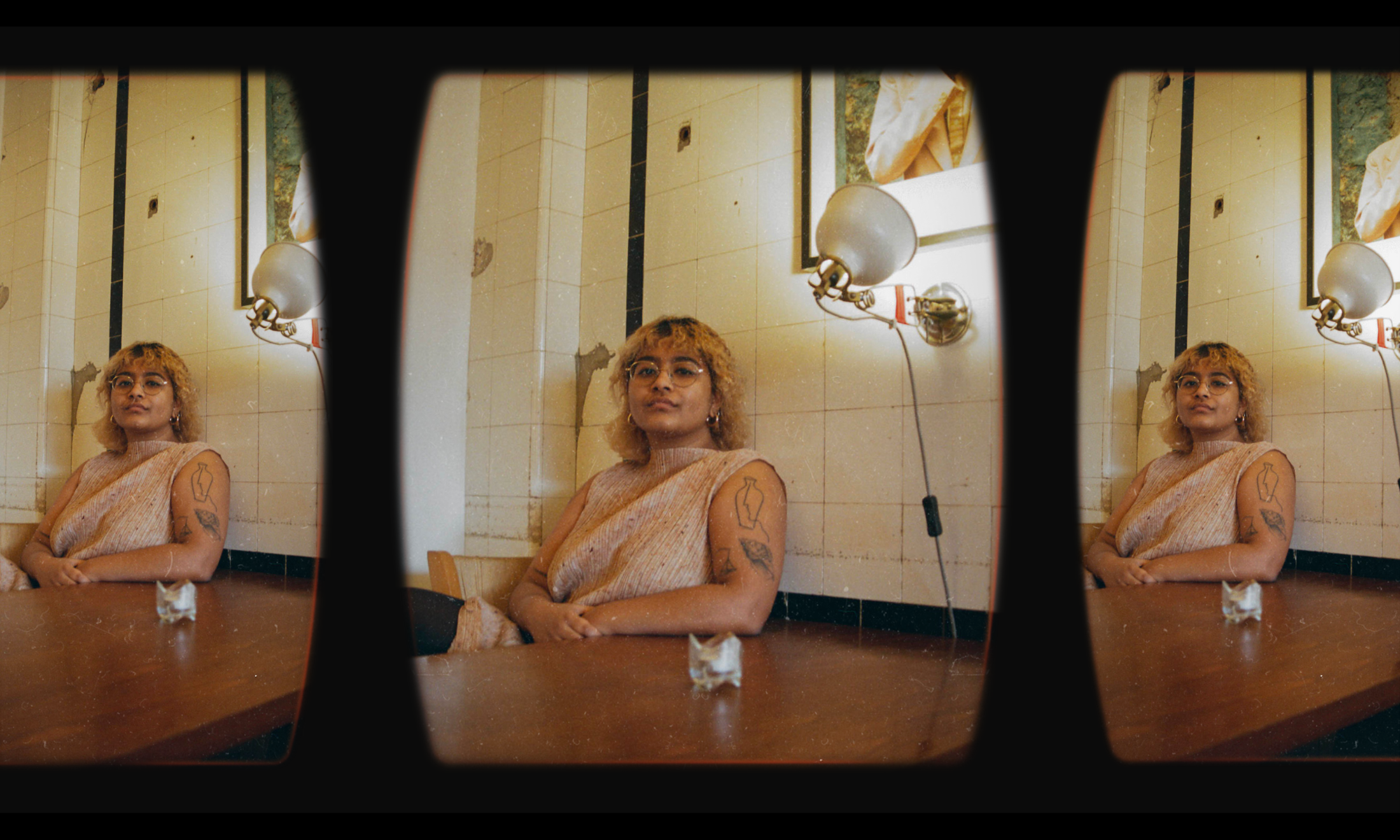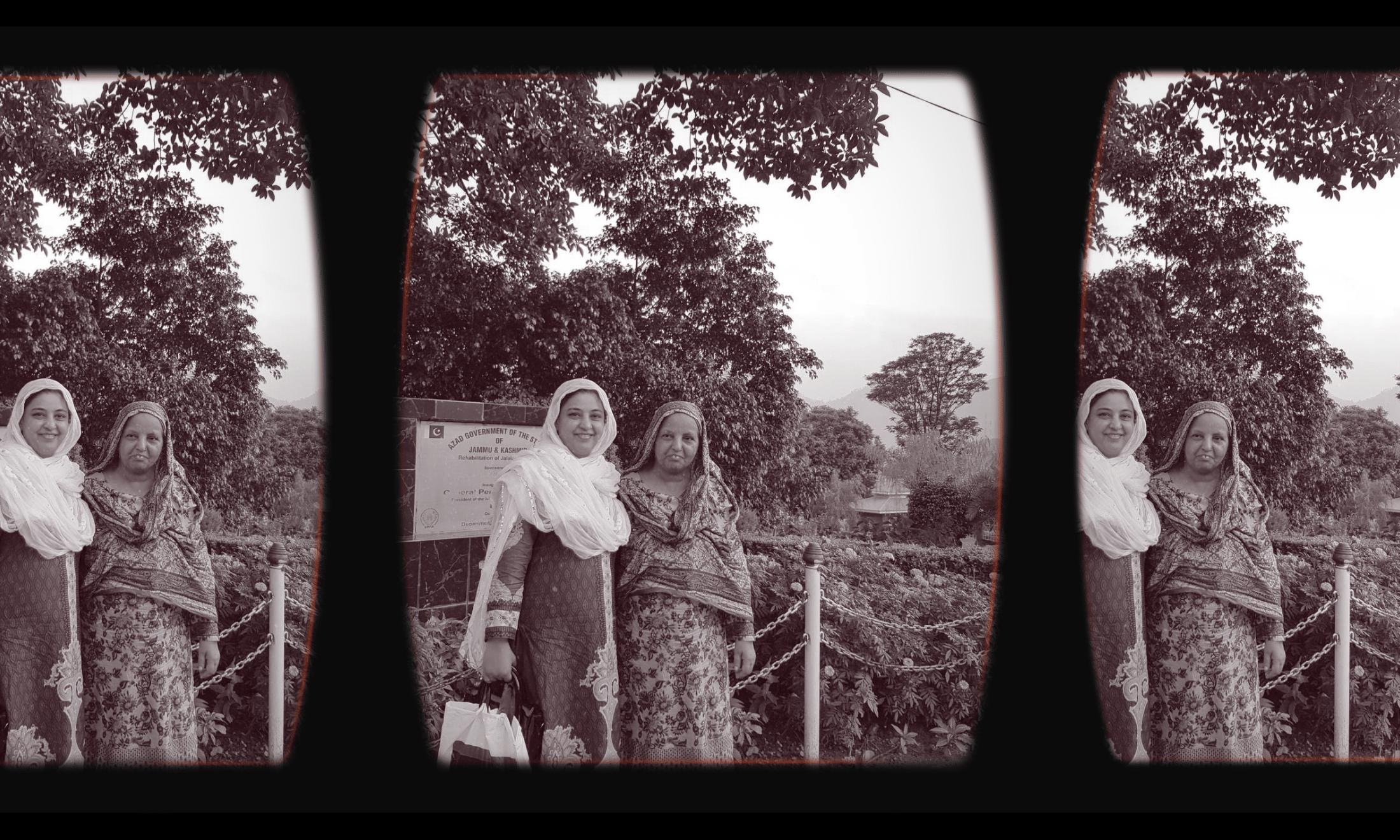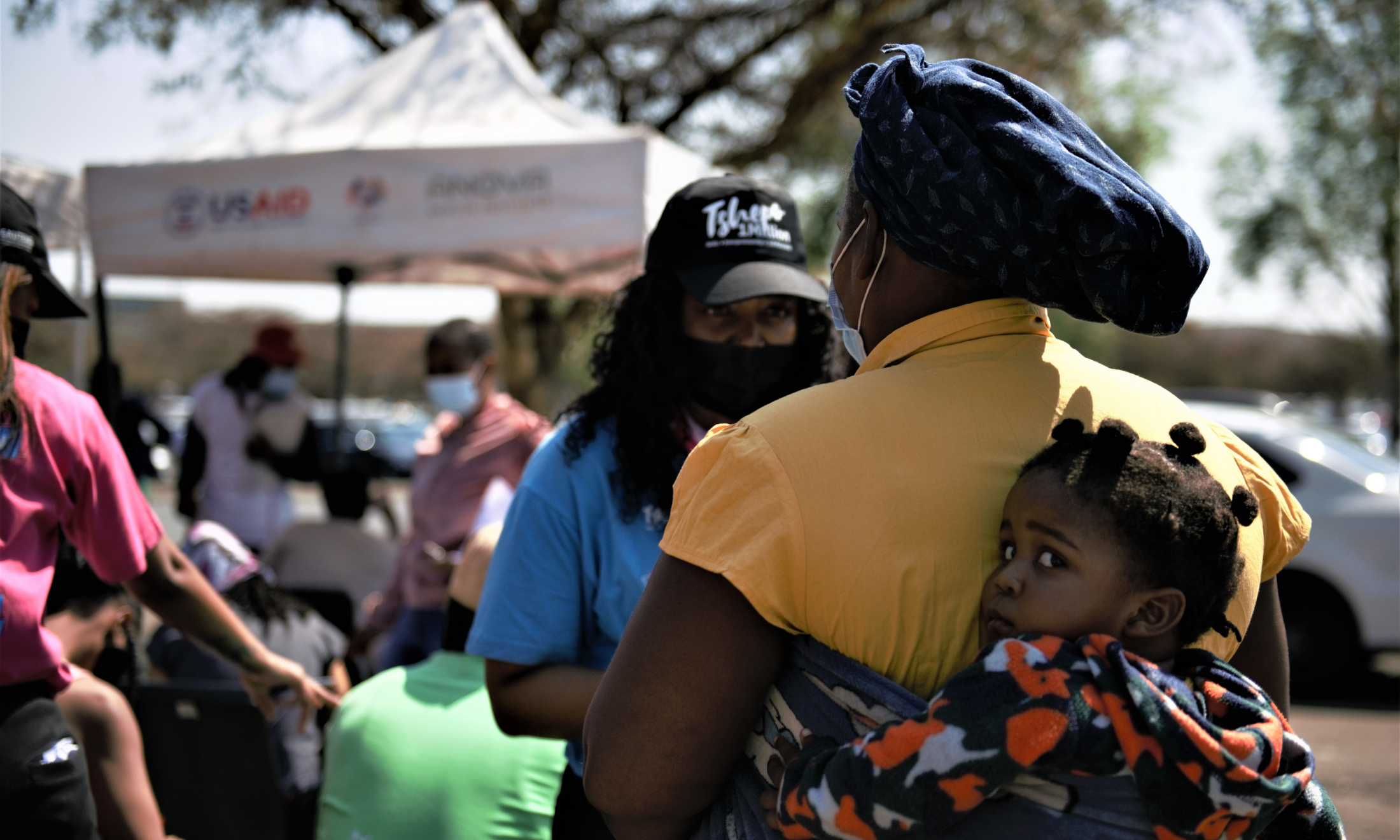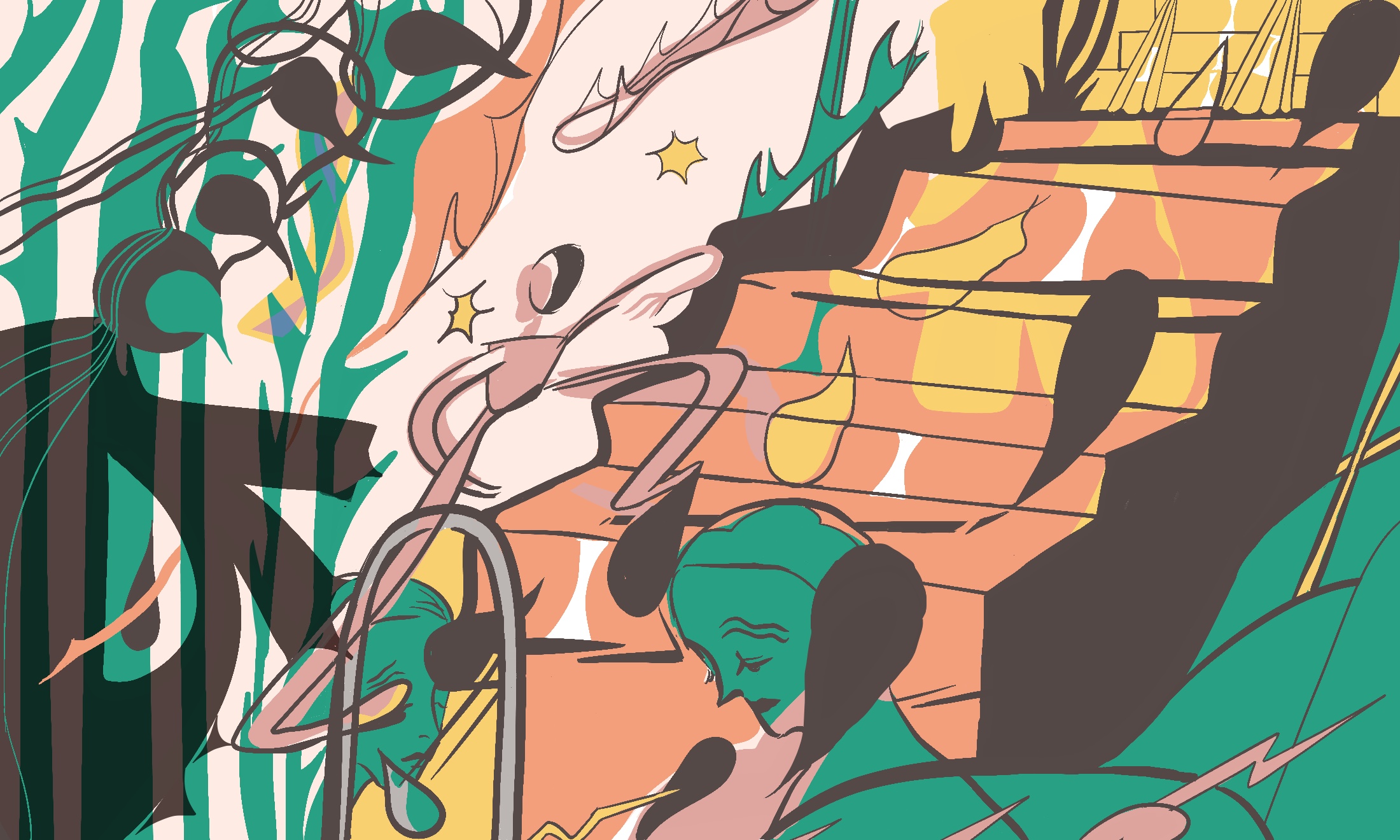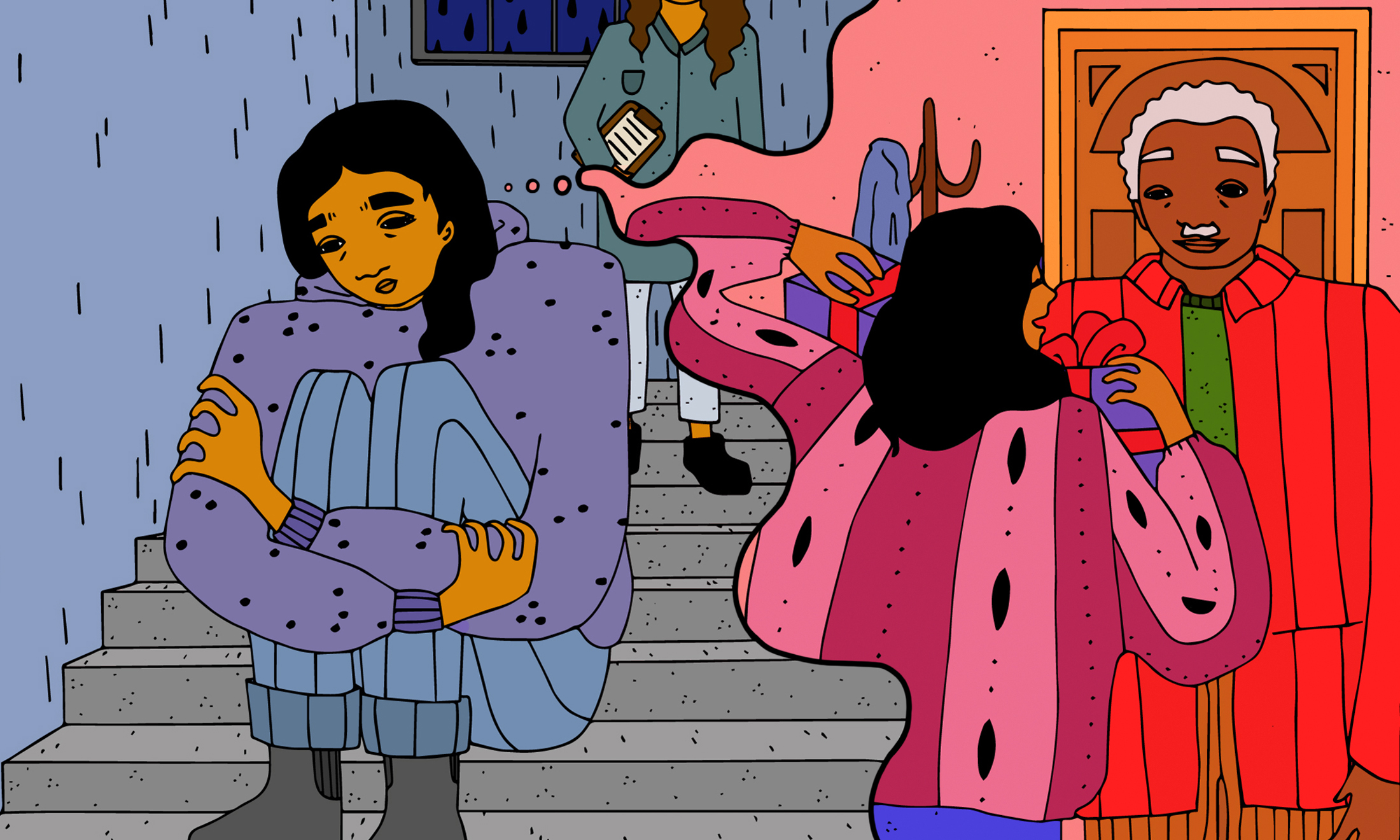
Aude Nasr
The NHS is stretched so thin, it nearly let my healthy father die
When Seeham Rahman's father came home to celebrate his 64th birthday, the last thing he expected was getting gravely sick.
Seeham Rahman and DiyoraShadijanova
17 Mar 2021
Until recently, I believed that loss was a feeling reserved for the dead. I could never imagine that I’d feel grief towards my father, who despite becoming extremely ill, was alive when I was deep in mourning. I definitely didn’t think that at 21, I’d scrape the barrel of my bank account in preparation for his potential funeral. The real possibility that I could lose my Baba, at any moment, was only ever a passing thought.
Yet, when my father was hastily hospitalised with severe Covid-19 symptoms, and under a deficient NHS, I felt like he was already gone. Even on the rare occasions when he was able to FaceTime me from the hospital, all I’d think about was how our life together was rapidly being snatched away. How, within a couple of days of my father embracing me with his healthy body, he was hanging on for his life and alone in a hospital bed.
The attack of the virus was too swift to fathom and felt even more sudden since my family was confronted by it on my father’s 64th birthday. The day was unordinary not only due to his sickness coming on, but also because for once, it seemed he had let go of his usual resistance to celebration.
“When my father was hastily hospitalised with severe Covid-19 symptoms, and under a deficient NHS, I felt like he was already gone”
When it comes to birthdays, my Baba never seems to indulge himself. It’s the Capricorn in him; always driven by hard-work and too grounded in reality to ever take a break. I, on the other hand, am a Leo: party-loving and probably too material-obsessed for my bank account’s good. So, in line with my persona, I had months-earlier designed how my dad’s birthday surprise would pan out. From carefully wrapped gifts at midnight, a syrupy, pancake breakfast and an abundance of other rich, sugary foods to snack on throughout the day, I had intricately planned it all.
When midnight on the day finally arrived, my dad became teary-eyed at his surprise gifts. It was wonderful to see him revelling in a day that he had always dismissed as ordinary. It allowed me to imagine an alternate reality. Where the sound of my Baba’s deep bellied chuckles leaping off the walls could dissipate all pandemic related worries, and plunging myself into a smiling parent’s arms could envelop me with an unparalleled sense of peace.
My family expressed an awareness of how lucky we were to observe such a jolly day as a unit. We opted into celebrating every day this way, because who was to tell when things would change. But the end of the evening cut our celebrations short. My Baba reached out and put my hand on his forehead.
“Do I feel a little hot to you?”
Shocked by the warmth radiating off his temple, I hesitantly laughed the question off. He was a little flushed, but I couldn’t say in confidence whether he was febrile. I tried to reconcile myself with the knowledge that if he was getting a fever, it wasn’t a Covid-19 symptom. He’d already been tested three times in a fortnight, with the results coming back negative each time. It had to be the flu or that he was simply run down.
“I was unable to deal with the idea that my Bangladeshi father had contracted the deadly virus. Such a notion would mean addressing the statistical inequalities in our lives”
I was unable to deal with the idea that my Bangladeshi father, an NHS surgeon, had contracted the deadly virus. Such a notion would mean addressing the statistical inequalities in our lives. Pre-existing conditions mixed in with his profession in one of the hardest-hit areas by Covid-19 meant a terribly low chance of his recovery. Naturally, we opted to preserve life as we knew it where possible: quarantining, yet refusing to mention the virus, and letting out false sighs of relief every time my dad fibbed that he felt better.
All the while, my Baba’s mystery illness was rapidly worsening. A week after his birthday, on New Year’s Eve, his condition deteriorated to a point where he couldn’t even leave his bedroom. So, after what felt like a perpetual wait between another false-negative and his eventual positive test, we finally decided to take him to the hospital.
When he left for urgent care, I didn’t puzzle over the dire situation as much as I should have. Despite knowing the difficulties existing in Covid-19 wards, I believed that my usually fighting fit father would be back in no time. In his decades-long career, my father has taken only one or two sick days off. Retrospectively, this less reflects his health and more so exhibits the excessive work ethic which led to his infection.
He’s always worked tirelessly to ensure that patients receive the most dedicated care possible. During my teenage years, when I’d journey in taxis from the local rank, most drivers would greet me as the great doctor’s kid; always declaring their thanks for his exceptional care to them or their kin.
“I never realised that the NHS being stretched so thin was such a life and death situation until my father actually arrived at A&E”
Yet, having repeatedly watched him toil, I’ve realised that his diligence wasn’t merely out of kindness. Watching him endlessly accept extra duties and come home after-hours as I was growing up, I began to recognise that NHS cuts and staff shortages have created a feeling of unceasing obligation in him. Over and over again I’d hear my father express his gloom at the expectation to assess new patients every 10-20 minutes (a result of ward and A&E closures) despite their need for extensive investigation. It’s understandable then, why I’ve always felt a quiet rage at the inaction to the NHS’ needs. As a Northerner, too, my life here has always been a tangible example of how Tory governance has always been apathetic to our welfare.
Still, I never realised that the NHS being stretched so thin was such a life and death situation until my father actually arrived at A&E. He was barely able to sit up and desperate to go to the bathroom, but he was forced to wait outside in a freezing car for over two hours. By the time of his admission, his respiratory distress worsened, yet he still had to wait several hours before transferral to another hospital with more appropriate facilities.
Throughout his hospitalisation (which lasted over a month before his return home), my family’s experiences felt intolerable. Bound to self-isolate in our rooms, my mother and I spent hours sitting across the hall from each other, waiting to get updates from nurses who never answered. At times, my weeping mum would beg for him to be considered for trial drugs – only to be met with resistance when asking to bring them to our NHS trust. Even with his symptoms intensifying, there was only space for him to receive particularised care when he was at the deep end.
It’s difficult to explain what grieving a person who is still alive feels like. The vocabulary doesn’t quite exist for such an indecipherable sadness, where the only solace is telling yourself that Allah would care for him, even if hereafter. I’m even now working through those lingering, low-burning feelings of grief. There are often moments where I squeeze my dad to make sure that he’s really there and every morning, I completely dissociate when thinking about the month of January. In my home, we’ve even made a pact to attempt not to discuss the virus in detail, so as to not trigger my dad, who has described the experience as deeply traumatic.
“I’ve grown tired of trying to repurpose my pain as some great passage to growth”
What we’ve discussed is that the effects of Covid-19 on his body work as a metaphor for the NHS. A system that has to work far too hard to simply respire, despite already struggling to subsist. That isn’t to say the staff weren’t caring for him constantly. Most went out of their way to look out for him or retrieve medication that seemed impossible to find. I am ever-grateful to them for his recovery and return home. However, no amount of personal aid can make up for the still depleting care which is ongoing a year since Covid-19 arrived.
This pandemic, resulting in my father’s hospitalisation, has been structured by government ineptitude and cuts. Not only are NHS staff like my father insulted by the recommendation for a meagre 1% pay rise this year, but the Prime Minister’s statements that he “did everything he could” and claps for NHS workers, anger those like me who know that the government’s attempts were not enough. Without monetarily tackling the disintegrating system, and acknowledging that it exists this way due to austerity and created geographical disparities, the burden can never be lifted from such a colossal collective pain.
Directly harmed by the inadequate test and trace system, inadequate PPE provision and poor lockdown rules, I feel lucky that my father is even still alive. I want to continue voicing this need for NHS reform, but I’ve grown tired of trying to repurpose my pain as some great passage to growth. Especially now, as my father’s bones ache, stitching my family back together takes precedence. Of course, for some time, I will feel hollow at the thought that I could have lost my father – but I’m grateful for the possibility of more birthdays together.

